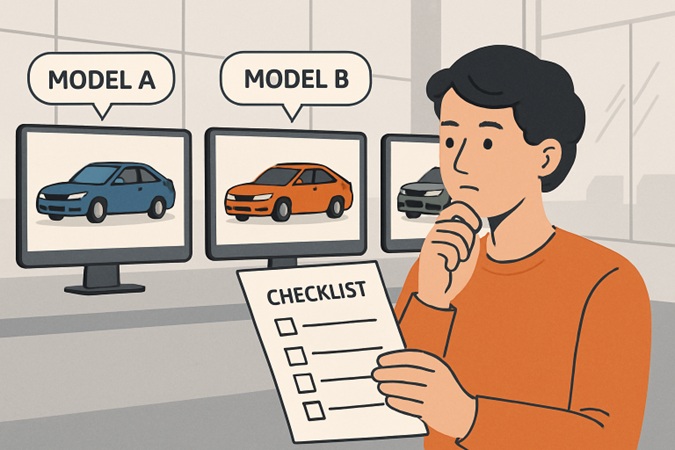
New Car Buyer Tips: A Smart Guide
Key Takeaways:
- Budget realistically for both the purchase and ongoing ownership costs.
- Conduct thorough research on car models, dealers, and financing choices.
- Take advantage of the optimal timing for seasonal sales and promotions.
- Negotiate strategically and always be prepared to explore other options if needed.
- Account for all ownership expenses, from insurance to regular maintenance.
Introduction
Purchasing a new car is both an exciting milestone and a significant investment. Whether you are a first-time buyer or trading up for a newer model, the process involves crucial choices that will impact your finances and everyday convenience. Taking a systematic approach helps ensure you get the best value for your money and a car that truly fits your needs. If you want to learn more about the latest models and dealership incentives, excellent resources are available to guide you through your car-buying journey.
It’s essential to be well-prepared before heading to a dealership. You can avoid common pitfalls and secure the right vehicle by understanding all the necessary steps, including researching options, determining true costs, and negotiating confidently. Smart research and planning lead not only to a satisfying purchase but also to long-term happiness on the road.
Establish A Realistic Budget
Your car-buying journey should begin with a clear-eyed look at your finances. Calculate how much you can afford to spend without stretching your monthly budget too thin. Car ownership involves more than just the sticker price; factor in ongoing expenses such as insurance, routine maintenance, repairs, registration, and fuel. Most financial planners recommend keeping your monthly loan payment under 15% of your gross income, including all related ownership costs.
Utilize reliable online car cost calculators to estimate payments and compare scenarios with different down payments and loan terms. This simple step helps prevent financial surprises and ensures a sustainable purchase over the long term.
Research & Compare Car Models
The market offers a dizzying array of new vehicles, each with strengths and compromises. Prioritize your daily driving needs, including passenger capacity, safety features, connectivity, and efficiency. Consult dependable sources for reviews and long-term reliability ratings to identify models that align with your values and lifestyle. Comparing multiple models side-by-side can reveal important differences in features, resale value, and overall ownership costs, making it easier to narrow your options.

Explore Financing Options
Visiting a dealership with a pre-approved loan offer gives you the upper hand at the bargaining table. Start by seeking loan quotes from banks, credit unions, or reputable online lenders and compare their interest rates and terms. Knowing your credit score and improving it beforehand, if possible, may unlock more favorable rates. This groundwork allows you to shop with confidence and negotiate as a cash buyer, broadening the range of deals available to you.
Time Your Purchase Strategically
The timing of your purchase can make a substantial difference in the deal you get. Automakers and dealerships often offer significant incentives, such as cashback or lower interest rates, at the end of the month, quarter, or calendar year as they aim to hit sales targets. National holiday sale events are also prime opportunities for discounts. By waiting for these windows, especially during model year closeouts, you can potentially save thousands on your ideal car.
Negotiate With Confidence
Negotiation is a natural part of the car-buying process, so come prepared with research on pricing and incentives. Know the invoice price—the amount the dealer paid for the car—versus the manufacturer’s suggested retail price (MSRP). Discuss each deal aspect separately, including trade-in value and financing arrangements, to avoid confusion. If the terms don’t suit your needs, don’t hesitate to walk away and continue your search elsewhere. Leveraging information from trusted sources like Kelley Blue Book can support your negotiations.
Calculate Total Ownership Costs
Affordability doesn’t end at the dealership. Take a comprehensive approach by factoring in insurance premiums, taxes, depreciation, fuel, and scheduled service over the car’s lifetime. Some models, particularly those with advanced technology or premium features, may carry higher maintenance expenses and depreciation rates. Evaluating the five-year cost to own figures, when available, can shed light on the true long-term value of your prospective vehicle.
Test Drive & Inspect Thoroughly
Never skip the test drive, even if you are already sold on a specific model. Pay attention to seat comfort, driving visibility, ease of control placement, and ride quality. Test all in-car technology and safety systems for intuitive use and performance. If possible, drive on various roads to get a holistic sense of the car’s dynamic performance. Inspection is equally critical; ensure there are no defects, cosmetic flaws, or performance issues before committing to a purchase.
Review Warranty Coverage & Dealer Services
Before finalizing the paperwork, take time to understand the warranty coverage included with your new vehicle. Warranties vary widely in length and scope, covering different mechanical systems, electronics, and routine maintenance. Ask about the possibility of extended warranty plans or prepaid service packages, but remain cautious about unnecessary add-ons that can inflate costs without delivering tangible benefits. Take these details into account to enhance your peace of mind over the coming years.
Approaching your new car purchase with knowledge and preparation will help you avoid buyer’s remorse and set the stage for years of enjoyment behind the wheel. By staying informed and methodical, you ensure that every dollar invested delivers meaningful value, convenience, and satisfaction on the road ahead.
Final Thoughts
Making a smart vehicle purchase requires preparation, patience, and informed decision-making. By setting a realistic budget, comparing options, and understanding key features, buyers can avoid common pitfalls and make choices that truly fit their needs. Negotiating confidently and reviewing financing terms carefully adds further protection and peace of mind. With the right approach, purchasing a new car becomes less overwhelming and more empowering, leading to a vehicle that brings satisfaction, reliability, and value for years to come.

